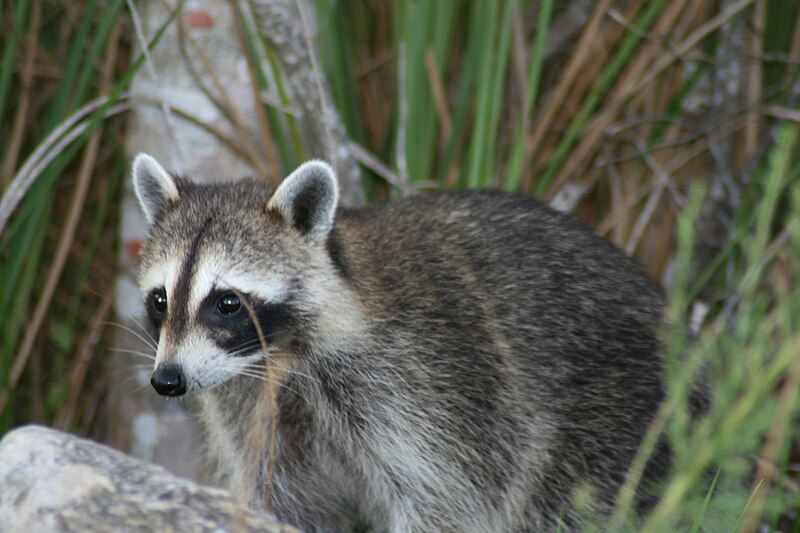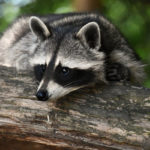Raccoon urine smells strong and musky, often described as a mix of ammonia and wet fur.
Ever walked into your attic and been hit with a mysterious, pungent smell that makes you scrunch up your nose and wonder what on earth could be causing it? Well, you might be dealing with an uninvited guest: a raccoon. Yep, these adorable bandits aren’t just experts at raiding your trash—they can also leave behind a very distinctive calling card in the form of their urine.
So, what exactly does raccoon urine smell like? In this article, we’re going to dive into the specifics of that peculiar scent, explore why it smells the way it does, and give you some tips on how to handle it if you suspect a raccoon has made itself at home in your space. Trust me, by the end of this, you’ll be a raccoon urine identification pro!
Key Takeaways
- Raccoon urine has a distinctive, strong musky odor.
- Recognizing this smell can help you identify a raccoon problem.
- There are health risks associated with raccoon urine.
- Solutions exist to handle and mitigate this pungent issue.
The Distinctive Smell of Raccoon Urine
Alright, let’s get down to the nose-wrinkling details. What does raccoon urine actually smell like? Imagine walking into a room that’s been doused with a mix of ammonia and the lingering scent of a wet dog. It’s strong, musky, and definitely not something you can ignore. The smell can be so overpowering that it almost seems to stick to your nostrils.
Raccoon urine has this distinct odor primarily because of their diet and natural body chemistry. These critters are omnivores, munching on everything from fruits and vegetables to small animals and insects. This high-protein diet contributes to the potent smell of their urine. Additionally, raccoons have a naturally strong body odor, which only adds to the intensity of the scent.
But why exactly does it smell like a mix of ammonia and wet fur? The ammonia-like smell comes from the high levels of urea in their urine. Urea breaks down into ammonia over time, which is why the smell can get worse the longer it lingers. The wet fur scent is just a part of the raccoon’s natural musk, something they carry with them wherever they go. So, if you’re catching a whiff of this particular aroma, it’s a good sign you might have a raccoon nearby.
Next up, let’s delve into why raccoon urine has such a distinctive odor and what environmental factors can make it even more noticeable.

Why Does Raccoon Urine Smell This Way?
Now that we’ve established that raccoon urine has a uniquely pungent aroma, let’s dive into why it smells the way it does. Understanding the biology and environmental factors behind this smell can give you a clearer picture of what you’re dealing with.
First, let’s talk biology. Raccoons have a diet that includes a variety of foods—everything from fruits and veggies to small mammals and insects. This high-protein diet means that their urine is packed with urea, a nitrogenous compound that breaks down into ammonia. The higher the protein intake, the more urea is produced, and the stronger the ammonia smell. That’s why raccoon urine has such a potent, ammonia-like odor.
But it’s not just the diet that contributes to the smell. Raccoons also have naturally strong body odors, thanks to their dense fur and the oils their skin produces. This musky, somewhat damp smell blends with the ammonia, creating that unmistakable scent of raccoon urine.
Environmental factors play a role too. Temperature and humidity can intensify the smell, making it even more noticeable. In warmer conditions, the breakdown of urea into ammonia happens faster, resulting in a stronger odor. Similarly, high humidity levels can make the smell linger in the air longer, turning your attic or basement into a veritable olfactory nightmare.
Interestingly, raccoons are quite particular about where they relieve themselves. They often choose the same spots repeatedly, which can cause the smell to build up over time. If you’ve got a raccoon making itself at home in your attic, you’ll likely notice the smell getting worse as the days go by.
Understanding these factors can help you pinpoint the source of that mysterious odor and take the right steps to address it. Speaking of which, let’s move on to how you can identify raccoon urine in your home and what signs to look out for.
Identifying Raccoon Urine in Your Home
So, you’ve caught a whiff of something unpleasant, and you’re starting to suspect a raccoon might be the culprit. But how can you be sure? Here are some key signs to help you identify raccoon urine in your home.
The Unmistakable Smell
The first and most obvious indicator is the smell. As we’ve discussed, raccoon urine has a strong, musky odor that combines ammonia and wet fur. If you notice this particular scent, it’s a strong clue that you might have raccoon visitors.
Strange Noises
Raccoons are nocturnal creatures, so you might hear them moving around at night. Listen for scratching, thumping, or scampering sounds, especially in your attic, walls, or basement. These noises often accompany the smell.
Visible Tracks and Droppings
Raccoons leave behind tracks that can help confirm their presence. Look for small, hand-like paw prints around entry points or areas where you’ve noticed the smell. Additionally, raccoon droppings are usually dark, tubular, and can often be found near urine spots.
Urine Stains
If the smell is strong, you might also find urine stains. These stains can appear on insulation, wood, or other surfaces in your attic or basement. The stains are typically dark and can be accompanied by droppings.
Nests or Bedding
Raccoons often create nests or bedding areas out of insulation, leaves, and other materials. If you find a nest in a location where you’ve noticed the smell, it’s another strong indicator of raccoon activity.
Entry Points
Check for signs of entry around your home. Raccoons can squeeze through surprisingly small openings, so look for gaps, holes, or damaged vents where they might be getting in. You might also see fur or scratch marks around these entry points.
Dealing with Raccoon Urine Odor
Discovering that you have raccoon urine in your home can be quite unpleasant, but don’t worry – there are effective ways to tackle the odor and prevent future invasions. Here’s what you can do:
Immediate Steps to Take
Ventilate the Area
Open windows and doors to allow fresh air to circulate. Use fans to help disperse the smell. Proper ventilation is crucial in reducing the concentration of the odor in your home.
Clean and Disinfect
Thoroughly clean the affected areas using a mixture of water and enzymatic cleaner specifically designed for pet urine. Enzymatic cleaners break down the proteins in urine, effectively neutralizing the smell. Be sure to wear gloves and a mask to protect yourself from potential pathogens.
Use Odor Neutralizers
Apply odor neutralizers like baking soda or activated charcoal around the affected areas. These substances can help absorb and eliminate lingering smells. You can also use commercial odor eliminators designed for pet odors.
Long-Term Solutions
Seal Entry Points
Inspect your home for any potential entry points and seal them up. This includes repairing holes, securing vents, and installing raccoon-proof chimney caps. Ensure that any openings larger than a quarter are closed off, as raccoons can squeeze through surprisingly small gaps.
Install Motion-Activated Lights or Sprinklers
Raccoons are nocturnal and tend to avoid well-lit areas. Installing motion-activated lights or sprinklers around your home can deter them from coming too close. The sudden activation can startle and discourage them from entering your property.
Remove Food Sources
Secure trash cans with tight-fitting lids and avoid leaving pet food outside. Raccoons are opportunistic feeders and will return to places where they can easily find food. By eliminating these sources, you reduce the chances of them lingering around your home.
Call Wildlife Control
If the problem persists or you’re dealing with a significant infestation, it’s best to call in professional wildlife control. They can safely and humanely remove the raccoons and provide advice on further prevention measures.
Fun Facts About Raccoons
After diving into the somewhat stinky side of raccoon behavior, let’s lighten things up with some fun and fascinating facts about these clever critters. Raccoons are more than just mischievous pests – they’re incredibly interesting animals with some unique traits.
Masked Bandits
Raccoons are often called “masked bandits” because of the distinctive black markings around their eyes. These markings not only give them a charmingly roguish appearance but also help reduce glare and enhance their night vision.
Highly Dexterous
Raccoons have incredibly nimble front paws, almost like tiny hands. They use these dexterous paws to open containers, manipulate objects, and even unlatch doors. This ability makes them excellent problem solvers and quite the escape artists.
Night Owls
These nocturnal animals are most active during the night. Their excellent night vision and keen sense of smell help them forage for food in the dark. So, if you hear rustling in your attic at night, it might just be a raccoon on the prowl.
Water Lovers
Despite their mischievous reputation, raccoons are known for their meticulous grooming habits. They often dunk their food in water before eating, a behavior that led to the belief that they “wash” their food. This behavior is thought to help them remove unwanted particles and make the food easier to handle.
Intelligent and Curious
Raccoons are highly intelligent creatures with impressive memories. They can remember solutions to tasks for at least three years. Their curiosity and problem-solving skills are comparable to those of primates, making them one of the smartest animals in the wild.
Urban Adaptability
Raccoons are incredibly adaptable and can thrive in urban environments. They’ve learned to live alongside humans, often rummaging through garbage cans and finding shelter in attics or basements. This adaptability is a key reason why they’re so widespread.
Communication Skills
Raccoons communicate using a variety of sounds, including purring, growling, and chittering. These vocalizations help them convey different emotions and intentions to other raccoons.
Longevity
In the wild, raccoons typically live up to three years, but in captivity, they can live for more than 20 years. This difference is due to the numerous dangers they face in the wild, such as predators, disease, and accidents.
Raccoons may sometimes be a nuisance, but there’s no denying that they’re fascinating creatures. Their cleverness and adaptability are traits to be admired, even if we’d prefer them to stay out of our attics!
Conclusion
So, there you have it – the surprisingly intricate world of raccoon urine and the raccoons themselves. From their unmistakable musky smell to their clever antics, raccoons are truly unique creatures. While their presence in your home can be a bit of a hassle, understanding what you’re dealing with is the first step toward finding a solution.
To recap, if you’re ever hit with that strong, ammonia-like smell mixed with a hint of wet fur, you’re likely dealing with raccoon urine. Identifying the signs, such as unusual noises, visible tracks, and urine stains, can help you confirm their presence. Immediate steps like cleaning and ventilating, along with long-term solutions such as sealing entry points and removing food sources, can effectively address the problem.
And remember, while raccoons might be a nuisance, they’re also fascinating creatures with remarkable intelligence and adaptability. Armed with this knowledge, you can tackle any raccoon-related issues with confidence and maybe even a touch of newfound appreciation for these furry bandits.
Next time you catch a whiff of that mysterious smell, you’ll know exactly what it is and what to do about it. And who knows, you might even find yourself sharing some fun raccoon facts at your next gathering – because, let’s be honest, who doesn’t love a good raccoon story?
Thanks for sticking with me through this odorous journey. Stay curious, stay informed, and may your home be forever free of unwanted raccoon visitors!














